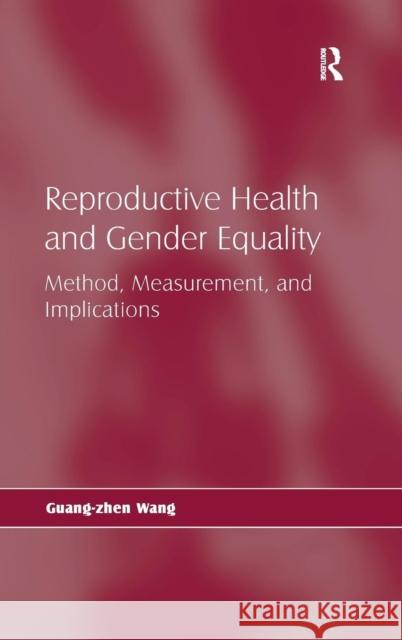Reproductive Health and Gender Equality: Method, Measurement, and Implications » książka
Reproductive Health and Gender Equality: Method, Measurement, and Implications
ISBN-13: 9780754648697 / Angielski / Twarda / 2010 / 220 str.
Reproductive Health and Gender Equality: Method, Measurement, and Implications
ISBN-13: 9780754648697 / Angielski / Twarda / 2010 / 220 str.
(netto: 743,28 VAT: 5%)
Najniższa cena z 30 dni: 705,23
ok. 16-18 dni roboczych.
Darmowa dostawa!
Since the late 1990s approaches to women's reproductive health has shifted from a service-based model to a human rights approach. This approach associates reproductive health with freedom from discrimination and enjoyment of a satisfying and safe sex life, and full access to information and services related to reproduction. In spite of this shift, and the global effort to promote women's reproductive health through the enhancement of human rights and gender equality, progress has been very slow. In this book the author fills a much-needed empirical study of women's reproductive health. The author assesses data from 137 developing countries (or areas) and challenges the prevailing bioscience and public health models by linking women's reproductive health to gender equality measures and development policies. Discussion on abortion rights, regional variations and reproductive health needs among refugees and internally displaced persons are also discussed. This is a timely study which provides a theoretical and social policy basis for monitoring and improving women's reproductive health in developing countries. This is particularly important in the light of insufficient research in the field and a lack of analysis on the empirical and theoretical linkages between reproductive health and gender equality. The book will be of interest to researchers, professionals and students interested in women's health issues, gender/women's studies and human rights.











